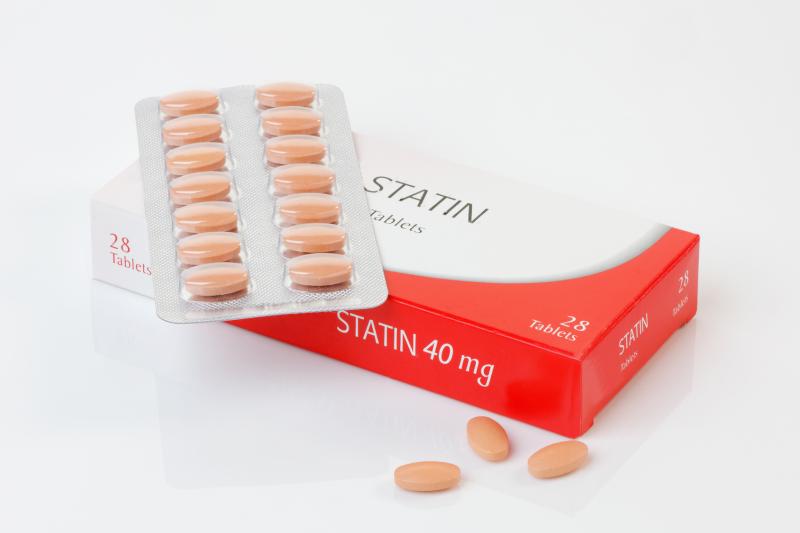Statins may protect against C. difficile infections




 Other experts stand firm that effectiveness of statins is well proven
Other experts stand firm that effectiveness of statins is well provenUse of statins appears to confer a protective benefit against the development of Clostridium difficile infection (CDI) and improve CDI treatment success, according to a study. However, its benefit on mortality remains unclear.
“Although there remains a paucity of data, we have presented preliminary evidence reviewing the impact of statins on CDI development, treatment success, and mortality, which suggest some benefit to statin use in terms of CDI development and treatment success,” the investigators said.
The database of Medline was searched for English-language literature from 1964 through January 2019 using the following terms: statins, HMG-CoA inhibitors, Clostridium difficile, Clostridium difficile associated diarrhea, and Clostridium difficile infection. The investigators identified additional references from review of literature citations. Studies that examined the effects of statin of C. difficile-related outcomes were included in this review.
Eight studies met the eligibility criteria, all of which were retrospective in design. Five studies reporting the association between statin use and CDI development found that statins could potentially lower the risk of developing CDI if the patients were already using the HMG-CoA reductase inhibitor. One study demonstrated an improved treatment response against CDI with the use of statin. [J Pharm Pract 2020;33:497-505]
Three studies assessed the association between statin use and mortality from CDI, but only one reported a significant mortality benefit in statin users.
“A growing body of evidence exists supporting statin use for various mechanisms outside of cholesterol-lowering activity, including for the prevention and treatment of infections via anti-inflammatory and immunomodulatory properties,” the investigators said. [J Pharmacol Exp Ther 2000;294:1043-1046; Surgery 2006;139:283-287; Nat Rev Drug Discov 2005;4:977-987; Annu Rev Pharmacol Toxicol 2005;45:89-118]
One of these mechanisms is via statin-induced inhibition of isoprenylation of Rho GTPase proteins. The Rho pathway works as a signaling switch for downstream cell cycle changes. It can affect the functions of endothelial, vascular smooth muscle, inflammatory cells, and platelets. [Circ Res 2005;97:1232-1235; J Am Heart Assoc 2015;4:e002113]
“Paradoxically, Rho inhibition decreases the inflammatory effects caused by CDI, [but the] presence of C. difficile toxins may also stimulate cytokine-induced inflammation as part of the immune process,” the investigators noted. [Toxins (Basel) 2015;7:5254-5267; J Biol Chem 2000;275:9725-9733; Glycobiology 2007;17:15R-22R]
“Since C. difficile toxins and statins both affect Rho GTPase proteins, among others, there might also be unspecified interactions that may affect the toxigenic effects of CDI,” they added.
The current review was limited by the retrospective nature of the studies included and the wide array of outcomes. Although numerous studies showed the protective effects of statins in reducing the risk of CDI development, several aspects of the trials needed consideration, according to the investigators.
“Larger, prospective studies are needed to confirm current results and identify the specific population that may benefit the most from this intervention,” they added.